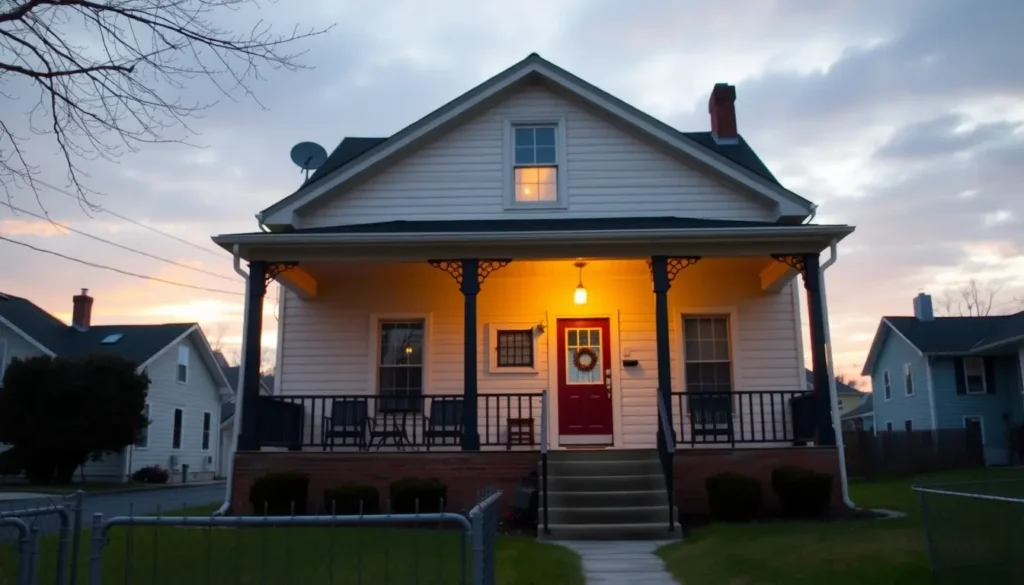Understanding who is responsible for paying utilities is essential when renting in East Orange, NJ. Whether you’re a tenant searching for an affordable rental or a landlord managing multiple properties, knowing the local standards around utilities is critical to avoiding confusion, budgeting correctly, and staying compliant with state housing laws. This guide explores everything you need to know about utility responsibilities in East Orange—from typical lease arrangements to the differences between single-family and multi-family homes, and more.
1. Introduction: Understanding Utility Responsibilities in East Orange Rentals
East Orange, located in Essex County, is a densely populated urban community just 13 miles west of New York City. Known for its accessibility to public transportation, cultural diversity, and range of rental housing options, the city has become increasingly attractive to both renters and real estate investors. As rental demand increases, tenants and landlords alike are raising an important question: Who is responsible for paying the utilities?
Utilities refer to the essential services required to operate a home or apartment comfortably and legally. These usually include electricity, gas, water, sewer, trash removal, and sometimes even heat, cable, or internet. The person responsible for paying these services depends heavily on the structure of the lease and type of rental property. If the responsibilities aren’t clearly defined upfront, disputes can arise later. That’s why understanding the norms in East Orange is crucial whether you’re signing a lease or creating one.
2. Overview of Rental Utility Practices in New Jersey
Statewide, New Jersey does not enforce a one-size-fits-all approach when it comes to utilities in rentals. However, the law does mandate that landlords must provide habitable living conditions, which can include maintaining heat during the colder months (typically October 1 through May 1). This means that, in some cases, even if a tenant pays for gas, the landlord might be held accountable if heating is insufficient or not operational.
In East Orange, landlords and tenants generally follow one of three utility models:
- Tenant-Paid Utilities: Most common in single-family homes or individually metered units.
- Landlord-Paid Utilities: Often found in multifamily housing or where utilities are shared.
- Utilities-Included Rentals: The landlord includes a flat fee for all or most utilities in the rent.
Whether you’re a tenant budgeting for your monthly bills or a landlord pricing your rental, understanding these three models is crucial to avoid underestimating total housing costs.
Typical Utilities Involved:
- Electricity (lighting, appliances, air conditioning)
- Natural Gas (heating, stove, dryer)
- Water and Sewer (consumption and wastewater)
- Trash/Recycling Collection (city-managed or privately billed)
- Internet and Cable (usually always tenant-paid)
3. Landlord vs. Tenant: Who Typically Pays for Utilities?
The party responsible for utility payments is determined by the lease agreement, but local trends and the type of building also influence this. In East Orange, the pattern often follows this general rule:
- Tenants pay: When the rental is a private, single-unit home with its own utility meters.
- Landlords pay: In older multifamily buildings where utilities are shared and individual metering isn’t available.
- Split or shared model: Landlords use a ratio utility billing system (RUBS) to divide utility costs among tenants.
This breakdown highlights the importance of reviewing the lease carefully. If your unit has a shared boiler and one gas meter, chances are the landlord pays for heating. However, if you’re renting an updated duplex with two electric meters, you’ll probably handle your own utility accounts directly with PSE&G or another provider.
Another point to consider is transparency. A good landlord will clarify in the listing whether utilities are included and specify which ones are tenant-paid. Vague language like “some utilities included” should prompt you to ask for clarification before signing anything.
4. Single-Family Homes: Utility Payment Expectations
Single-family homes in East Orange are increasingly in demand, especially among families looking for more space. In these types of rentals, utility payment responsibilities are almost always placed on the tenant. This includes everything from turning on the lights to paying for water usage and trash pickup.
What tenants typically pay in single-family rentals:
- Electricity and natural gas
- Water and sewer
- Garbage and recycling (if not handled by the city)
- Internet and streaming/cable services
It’s also common for tenants to be required to initiate and manage utility accounts themselves. That means calling service providers, placing deposits, and transferring accounts into their name prior to move-in day. While this gives tenants control over usage and billing, it also means they must monitor due dates and usage spikes—especially in winter months or hot summers when HVAC systems work harder.
5. Multi-Family Properties: Shared Utilities and Billing Methods
East Orange has an abundance of multifamily housing, ranging from duplexes and triplexes to small apartment complexes. These types of buildings often have shared walls—and shared utilities. When utility systems serve multiple units (like one water main or a central gas line), landlords must decide how to handle billing fairly.
Three common approaches include:
- Utilities Included: The easiest for tenants, this model has the landlord absorbing utility costs and bundling them into the rent.
- Flat Monthly Fees: Landlords charge a consistent extra fee for utilities, usually based on historical usage.
- RUBS: A Ratio Utility Billing System splits the total utility cost among tenants based on square footage, occupancy, or bedroom count.
While RUBS helps ensure fairness in shared billing, it’s important that tenants receive transparent breakdowns. Some landlords also invest in submeters to allow for individual unit usage tracking, especially for newer or renovated properties. Always request to see how utility costs are calculated before signing your lease.
6. The Role of Lease Agreements in Defining Utility Responsibilities
Your lease is your best friend (or worst enemy) when it comes to utilities. In East Orange, most standard leases spell out which utilities the tenant is expected to pay, and which ones (if any) the landlord will handle. If your lease is vague, request written clarification. In legal disputes, courts will refer to the written lease—not verbal agreements.
Typical clauses to look for in your lease:
- “Tenant shall pay all utilities except water and sewer.”
- “Landlord shall provide heat during winter months at no additional charge.”
- “Utilities are included in the monthly rent.”
If your unit is subject to rent control or a Section 8 housing voucher, the lease may also reference additional local or federal rules governing utility payments. In any case, make sure both parties understand their responsibilities to avoid late payments, disconnects, or legal trouble.
Consulting with a professional property management company like RentShield Property Management can help ensure your lease meets all state and local standards, reducing the risk of future disputes.
7. Common Utilities in East Orange Rentals and Average Costs
Before committing to a rental, it’s essential for tenants to estimate their utility expenses accurately. East Orange follows the general trends seen across urban New Jersey, with some seasonal variations.
Here are average utility costs renters in East Orange may expect:
- Electricity: $70–$130/month depending on usage and air conditioning in summer
- Natural Gas (heating/cooking): $60–$100/month, with higher bills in winter
- Water & Sewer: $40–$80/month, typically paid quarterly if tenant is responsible
- Trash Collection: Included in local taxes for most residents, but private haulers may charge $25–$50/month
- Internet & Cable: $50–$120/month depending on speed and provider (Optimum, Verizon, etc.)
These estimates can help renters build a more realistic budget. However, landlords should also consider these figures when setting rent for utilities-included leases to avoid losing money or pricing out potential tenants.
8. Utility Deposit Requirements and Account Setup for Tenants
Once it’s established that the tenant is responsible for utilities, the next step involves setting up the service accounts. Most utility companies in East Orange, including PSE&G and East Orange Water Commission, require new customers to create an account and may request a deposit—particularly if the tenant has no credit history or a history of late payments.
How to set up your utilities in East Orange:
- Contact the utility provider at least 5–7 business days before your move-in date.
- Provide identification (usually a driver’s license or lease agreement).
- Pay any required deposit (usually $100–$250).
- Schedule the activation date.
Pro tip: Always confirm with your landlord which services require tenant accounts. For shared utilities like water or heating in multifamily homes, this may not be applicable.
9. Heat Requirements and Landlord Responsibilities
In New Jersey—and particularly in East Orange—the law requires landlords to maintain safe and habitable conditions. This includes providing adequate heat during winter months, even in units where the tenant pays for gas.
According to New Jersey state law:
- From October 1 to May 1, indoor temperatures must be at least 68°F between 6 a.m. and 11 p.m., and 65°F overnight.
- If heating is supplied via a landlord-managed boiler or furnace, they must ensure the system is functional at all times.
Landlords can face fines and code violations for not complying. Tenants should know their rights and use the city’s housing complaint hotline to report prolonged issues.
It’s also good practice for tenants to document any heating failures and communicate with their landlord in writing. A trusted property manager like RentShield Property Management ensures that heating and habitability standards are never compromised.
10. Internet, Cable, and Optional Utilities
Unlike water, heat, or electricity, internet and cable services are considered optional utilities—and they are almost always the tenant’s responsibility. That said, many renters rely on a fast internet connection for remote work, streaming, and general communication, making it an essential part of modern living.
East Orange internet providers include:
- Optimum by Altice – Popular for cable bundles and fiber internet
- Verizon Fios – Known for high-speed fiber services
- Xfinity (Comcast) – Available in limited areas
Installation fees range from $50–$100, but some providers offer promotions for new customers. Cable television is often bundled but is becoming less common with the rise of streaming alternatives.
Landlords generally do not provide or manage these services unless the property is marketed as a short-term furnished rental, like an Airbnb.
11. Legal Disputes and Tenant Protections
If disputes arise over utility payments or disconnections, tenants in East Orange are not without protection. The New Jersey Board of Public Utilities (BPU) and local housing authorities offer resources to mediate disputes and investigate illegal shut-offs or negligence by landlords.
Common legal disputes include:
- Unannounced shutoffs or denied access to heating systems
- Landlord failure to pay shared utility bills causing disconnection
- Tenants being billed for utilities not outlined in the lease
Tips for avoiding legal utility issues:
- Always get the utility agreement in writing
- Take photos of meters at move-in and move-out
- Keep copies of bills and payment confirmations
If issues escalate, tenants can contact Legal Services of New Jersey or the East Orange Housing Authority. Having a well-written lease and responsible property management company reduces the likelihood of legal trouble.
12. Tips for Landlords: Structuring Fair and Transparent Utility Agreements
For landlords, utility billing presents both legal and financial considerations. A poorly structured utility agreement can reduce rental income, increase tenant turnover, or lead to costly violations. That’s why transparency and clarity are essential.
Best practices for landlords in East Orange:
- Include utility responsibilities in all listings and lease documents
- Use submetering or RUBS for fairness in multifamily units
- Maintain heating equipment and water systems regularly
- Provide tenants with setup instructions for utility accounts
Also, if you’re considering a “utilities-included” model, ensure that your rental pricing reflects average consumption levels. Tenants may use more than expected if they’re not responsible for the direct costs.
Need help managing utility arrangements or tenant communication? Explore the full-service offerings from RentShield Property Management, your local expert in East Orange property care and tenant relations.
13. What Happens If a Tenant Fails to Pay Their Utilities?
When a tenant is responsible for their utility bills and fails to pay, consequences can escalate quickly. Utility companies typically offer a grace period or send a reminder, but after that, services may be disconnected. This can lead to serious habitability concerns—especially in winter when heating is critical.
Potential outcomes of unpaid utilities include:
- Disconnection of service (electric, water, or gas)
- Late fees and damage to the tenant’s credit
- Possible eviction for lease violations, depending on how the lease is written
Landlords are not usually liable unless the utility is in their name. However, if the shutoff affects shared systems or common areas, they may have legal obligations to restore service.
This highlights the importance of tenant screening and proper tenant qualification before handing over utility responsibilities.
14. Tips for Tenants to Manage Utility Costs Effectively
East Orange renters can take simple steps to reduce utility bills without compromising comfort. Budget-conscious tenants appreciate rentals that are energy-efficient, but there are also practical actions they can take themselves:
- Use smart thermostats: Schedule heating and cooling to reduce waste
- Seal windows and doors: Prevent drafts that increase heating costs
- Use energy-efficient appliances and bulbs (LEDs, Energy Star)
- Unplug devices when not in use to avoid phantom energy usage
- Do laundry in cold water and run full loads to reduce electricity use
Tenants should also communicate with landlords if they notice inefficient systems like leaky faucets or outdated HVAC units that could spike bills.
15. Who Pays for Repairs to Utility Systems?
Understanding who is responsible for utility system repairs—like a broken furnace, faulty wiring, or a leaking water heater—can prevent disputes between tenants and landlords.
Generally, landlords are responsible for:
- Repairing or replacing systems that supply electricity, water, and heat
- Maintaining plumbing, electrical wiring, HVAC, and hot water heaters
Tenants, however, may be liable for:
- Damage caused by negligence (e.g., broken pipes due to improper use)
- Minor maintenance such as replacing lightbulbs or air filters (if specified in lease)
A strong lease should outline these responsibilities. If you’re unsure about how to draft maintenance clauses, check out our guide on protecting your property through clear documentation and tenant accountability.
16. Can Landlords Include Utilities in Rent?
Yes, East Orange landlords can choose to include utilities in the rent—this is often known as an “all bills paid” or “utilities included” rental. While this can be appealing to tenants seeking simplicity, it requires careful consideration from the property owner.
Pros of including utilities in rent:
- Simplifies tenant budgeting
- Can attract more applicants, especially students or short-term renters
- Allows landlords to control which providers are used
Cons include:
- Risk of overuse and higher monthly costs
- Landlord pays regardless of tenant behavior
- Harder to adjust pricing if utility rates rise suddenly
To offset these risks, landlords can set usage caps or include only certain utilities like water and trash. If you’re managing a multi-unit building, utility-included pricing can be streamlined with the right condominium property management plan.
17. Understanding East Orange’s Local Utility Services
East Orange residents get their utilities through a mix of public and private providers. Here’s a quick reference for landlords and tenants to navigate services and support:
- Electric & Gas: PSE&G – www.pseg.com
- Water: East Orange Water Commission – www.eastorange-nj.gov
- Trash Collection: Provided by the City of East Orange Public Works Department
- Internet/Cable: Private providers such as Optimum, Verizon Fios
Most services have online portals for setup, bill pay, and outage reporting. The City of East Orange also maintains hotlines for service complaints and maintenance requests.
Pro tip: Landlords should provide new tenants with a welcome guide that includes provider contacts, setup steps, and meter locations. This ensures a smooth transition and fewer service interruptions.
18. RentShield’s Expert Advice on Utility Management
At RentShield Property Management, we help landlords in East Orange and nearby areas navigate the complexities of utility management. Whether you own a single-family home, multi-unit building, or Airbnb property, our team ensures that your leases, utility agreements, and tenant communications are fully compliant and efficient.
How RentShield supports your property:
- Drafting fair, legally sound lease utility clauses
- Setting up billing and sub metering solutions
- Managing tenant onboarding with full utility instructions
- Responding to utility disputes and service outages
Let us help you avoid costly mistakes, retain better tenants, and maximize your rental income. Learn more about our landlord support services and get your first consultation free.







